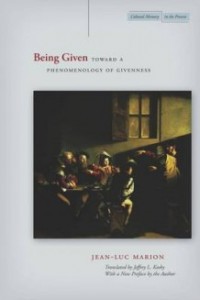AR: What books on the phenomenology and hermeneutics of the person would you recommend? Why precisely those books?
TP: Let me mention just a few: on this side of the Atlantic, the work of Robert Spaemann has only made ver limited inroads, even though there is a good case to be made for him being as towering a presence in philosophical ethics (broadly conceived) as Alasdair MacIntyre has been within the Anglo-American context. The language barrier and the usual lag of translations only accounts for part of that. In any event, Spaemann’s Persons: The Difference Between Someone and Something is a very important book on the subject. I can only hope that more of his important essayistic work, and also his superb, co-authored (with Reinhard Löw) work on teleology, will in due course find their way into intellectual conversation in this country. Another lucid philosophical work on the topic that I’d highly recommend is Sokolowski’s Phenomenology of the Human Person.

Philip Rolnick’s Person, Grace, and God also strikes me as an impressive theological exploration of the concept of personhood. There is Maritain’s older (1947) The Person and the Common Good. Here the approach to the issue is naturally shaped by the fact that Maritain’s formation had unfolded during the rather cramped and divisive intellectual era of neo-Thomism. Coleridge’s work on the concept of person, both in his Aids to Reflection and his posthumous Opus Maximum is obviously central to my argument and, I continue to think, indispensable to anyone meaning to inquire into the category of personhood. The same remains true of Levinas, Totality and Infinity, and I found it particularly instructive to observe how far an engagement with Plato causes Coleridge’s and Levinas’ thinking to unfold on a parallel track … up to a point, also instructive, where they do indeed part ways (cf. MtM599ff.).
Finally, I’d reference again Marion’s Being Given. Though not properly on personhood as such, Marion’s book offers one of the most phenomenological analysis of givenness and, in so doing, opens up a dimension of ethics antecedent to subjective preference and what Coleridge calls the “elections of the will.” Arguably my favorite among his many books, Marion’s Being Given achieves one of the most probing accounts of what Augustinian and Scholastic theologians mean by grace (a term I also engage now and then in MtM; e.g., 157-59).
Remember to read the first part of this interview, “Threatening Naturalism’s Universal Authority.”
==================
To see what else is going on in French phenomenology besides Marion click on Praying to a French God: Phenomenology as a Catholic Philosophy.
While you’re at it, Thomas Pfau’s list of the 11 most important critiques of modernity is an indispensable guide.
Last and least: Remember to pour a little gas in my tank via the PayPal donation button on the right side of my homepage.












